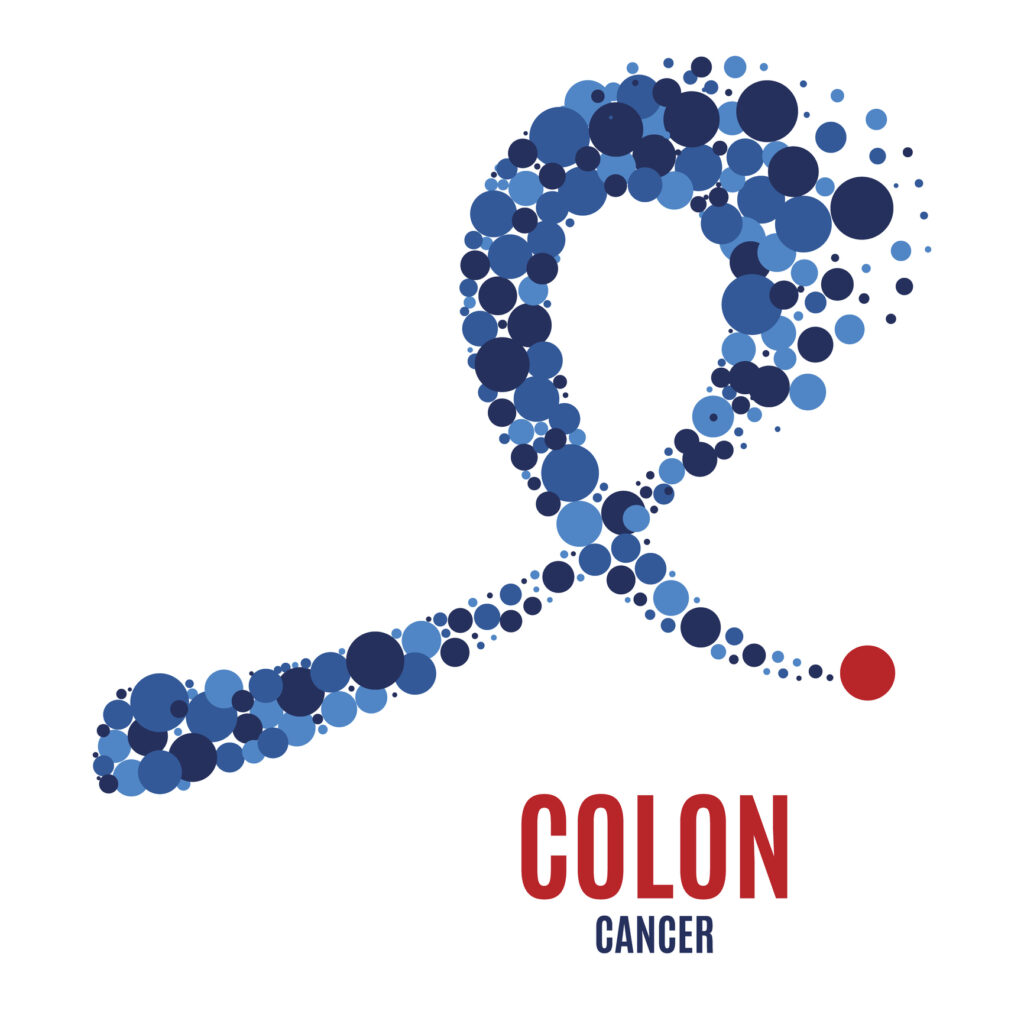by Heather Dommer, ARNP
March is national colorectal cancer awareness month. This was first dedicated by President Clinton in February 2000. Since then, March has become a month for everyone to bring further awareness to this disease. It has become a time for patients, survivors, caregivers, and families to remind us all to get screened.
According to the American Cancer Society (2022) colorectal cancer is the third most common cancer in adults, not including skin cancer. The overall rate of colon or rectal cancer has decreased over the past 10 years. Unfortunately, there has been a rise in the rate for younger adults. From 2012 to 2016 there was a 2% rise each year in those younger than 50 and a 1% rise in those ages 50-64. The good news is the death rate from colorectal cancer has been dropping. This means there are more colorectal cancer survivors.
Cancer in general, is caused by changes in the DNA inside our cells. We refer to these changes as gene mutations. Gene mutations can be either inherited vs acquired. Inherited gene mutations are passed down from generation to generation and only make up a very small amount of the mutations that cause colorectal cancer. Most of the gene mutations that cause colorectal cancer are acquired mutations. There are many risk factors that can lead to these acquired mutations. These risk factors include being overweight or obese, not being physically active, a diet high in red meat and/or processed meats, smoking, heavy alcohol use, personal history of inflammatory bowel disease, personal and family history of colon polyps, and increasing age.
Colorectal cancer screening is the number one way to prevent death from colorectal cancer and possibly even the development of colorectal cancer. Colorectal cancers can take 10-15 years to grow. During that time if a polyp is found with screening it can be removed before it ever has a chance to grow into cancer. In general, the sooner the polyp or cancer is found the better the outcome. When colorectal cancer is found in the early stages the 5-year survival rate is about 90% (American Cancer Society 2022).
New guidelines have lowered the age of when to start the screening from 50 to 45. There are several different tests that can be used for screening. They are broken up into two categories: stool-based exams and visual exams. Stool based exams are less invasive but do need to be done more often. Stool-based exams include testing for blood in the stool and a stool DNA test (Cologuard). A visual exam is a colonoscopy or a flexible sigmoidoscopy. It is best to discuss which screening is right for you with your doctor, but what is most important is having some type of screening done.
As with all cancer the treatments will vary based on several factors. Some of these factors may include the tumor size, stage, and lymph node involvement. Typical treatments include surgery to remove the cancer, chemotherapy, and radiation therapy. Newer treatments include targeted treatments and immunotherapy that works with one’s immune system to fight off the cancer.
Survivorship care after cancer treatment is important. The goal of cancer treatment is to remove/destroy cancer cells, but sometimes this is not always possible. Some people live with cancer for long periods of time while on maintenance treatment. No matter which category the patient fits into it is important to develop a survivorship care plan. This is a written plan that helps guide the patient and their healthcare providers for survivorship care. This will include a recommended schedule of follow-up exams or tests. It will also include screening recommendations, a list of side effects related to the treatment given, and wellness recommendations.
The Nassif Community Cancer Center is here to help with your cancer related concerns. We do offer a survivorship clinic. We have two licensed social workers that are available to talk with and help with resources in the community and to help coordinate counseling services. We do offer mediation classes monthly and exercise classes regularly. We have our Cancer Connections program that matches patients with others who have been through similar situations. We have an exercise specialist for one-on-one exercise and dietitians available to help with any diet concerns. The Cancer Center also offers reduced-cost massage, Healing Energy therapy, and acupuncture. If you would like to schedule an appointment for any of these services or would like further information, please call 319/558-4876. You can also get more information by visiting our website at www.communitycancercenter.org
Reference
American Cancer Society (2022). Colorectal Cancer. Retrieved from: https://www.cancer.org/cancer/colon-rectal-cancer.html Last accessed on February 18, 2022.







